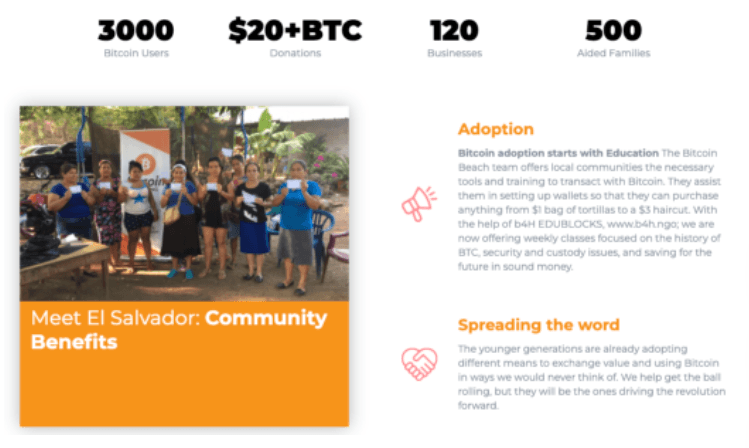Recently, American current affairs TV program “60 Minutes” shed some light on how young affluent foreigners are finding life on a beach town in El Salvador, where Bitcoin is legal tender.
As you may remember, the bill to make Bitcoin legal tender in El Salvador got passed by the Legislative Assembly on June 9 and the Bitcoin Law became effective on 7 September 2021.
On 24 June 2021, Salvadoran President Nayib Bukele announced during a national address that the Bitcoin Law would become effective on 7 September 7 2021.
According to a report by Slate that was published on 16 June 2001, here is how the village of El Zonte became one of the first places in El Salvador to make Bitcoin “de facto” legal tender:
“El Zonte is a village on the Pacific coast that has a population of about 3,000 people and is popular for surfing and fishing. While a beach town might sound affluent, El Zonte is not: According to Reuters, ‘El Zonte is visibly poor, with dirt roads and a faulty drainage system.’ In 2019, an anonymous donor in the U.S. reportedly began sending Bitcoin to nonprofits in the area with the aim of finding ways to build a sustainable cryptocurrency ecosystem in the community.
“Then nonprofit workers in El Zonte, in consultation with the donor, launched Bitcoin Beach, an initiative that injected the cryptocurrency into the local economy, set people up with digital wallets, and helped businesses set up systems to accept Bitcoin payments.
“Residents use a Venmo-like app payment system for exchanging Bitcoin, which was developed by a tech company in California called Galoy Money. Using the app, people can see which businesses accept Bitcoin and look one another up by username. ‘This was just the perfect laboratory,’ said Chris Hunter, co-founder of Galoy, of El Zonte. Hunter says El Zonte was a prime location for test-driving a Bitcoin payment system because of the lack of regulatory and tax burdens, the fact that most merchants and people don’t have credit cards, and dollarization of El Salvador’s economy.“

And that’s why El Zonte is sometimes referred to as “Bitcoin Beach”.
Anyway, on April 18, Politico published a report based on a segment about El Zonte in an episode of “60 Minutes” that was aired in the U.S. last month.
According to Politico’s report, El Zonte has attracted a new wave of affluent young foreigners interested in cryptoassets. In comparison to Puerto Rico, which has lured the nuevo crypto rich as a tax haven, El Zonte presents a beach town “insulated both from the violence and instability” plaguing the rest of El Salvador.
Crypto supporters are flocking to “Bitcoin Beach” buying property and creating formal meetups in an effort to further crypto adoption.
Sam, a French-Italian consultant in his early 30s, told Politico that he had moved to El Zonte after becoming fed up with the restrictive Covid policies being imposed by his native Europe.
Alex, another affluent youth hailing from Sweden, said he felt his homeland culture had become “oppressive,” and moved to El Zonte to pursue more personal freedom.
Alex said he began investing in Bitcoin a decade ago as a way to circumvent keeping his money in banks. He is hoping to buy a coworking space in El Zonte for other like-minded individuals who wish to advance the “movement” of making Bitcoin a global currency.
Disclaimer
The views and opinions expressed by the author, or any people mentioned in this article, are for informational purposes only, and they do not constitute financial, investment, or other advice. Investing in or trading cryptoassets comes with a risk of financial loss.
Image Credit
Featured Image by “gerson_rodriguez” via Pixabay.com









